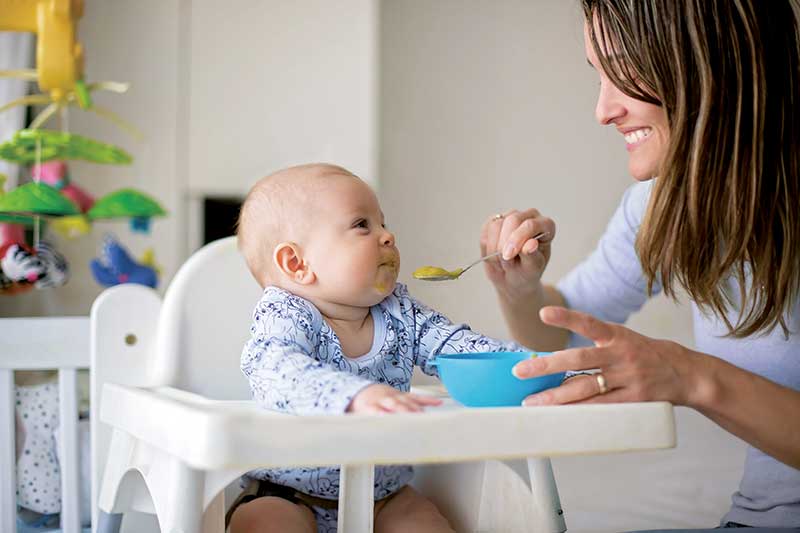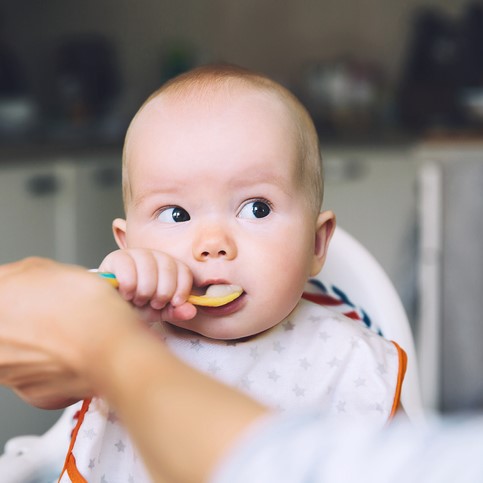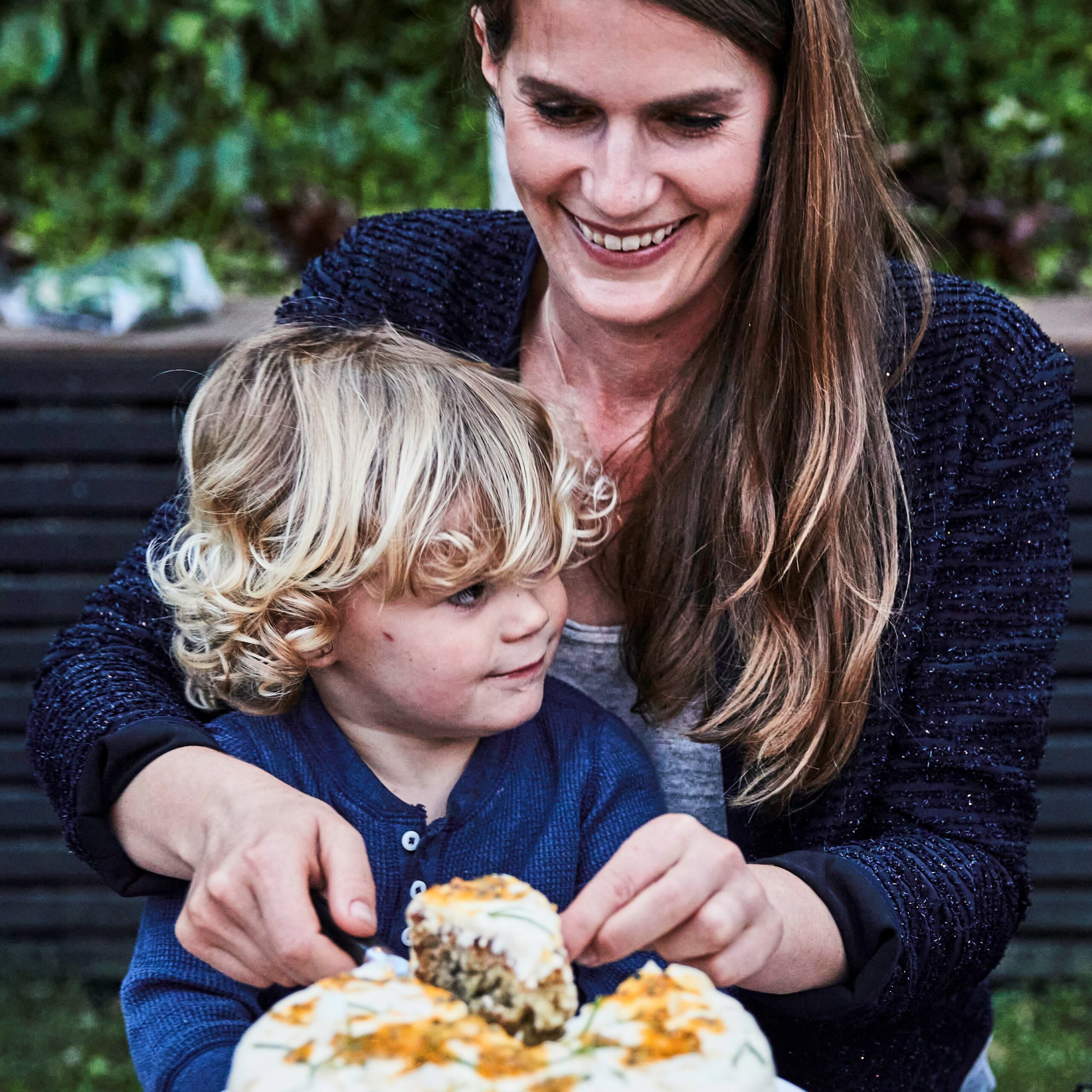All About Food When Starting Solids

An introduction to the importance of different types of foods for your pēpi, plus a list of what to avoid.
Starting solids is a completely new experience for your little one, so keep in mind that it’s normal for babies to progress at different rates as they explore new tastes and textures.
It is recommended to give vegetables and fruit, along with iron-rich foods every day, being sure to introduce common allergy causing foods. For more information on food allergies, see Starting Solids: Food Allergens.
In your baby’s first year, it’s important to give them a variety of foods in all colours, textures, and flavours (including naturally sweet, savoury and bitter tastes), not only for the nutritional benefit but so they learn to enjoy eating a range of foods. Research shows that you may need to offer your baby a new food up to 15 times before it is accepted.
Breast milk should be your baby’s main source of nutrition until they are one year of age, but once they start solids you can offer them some sips of water from an open cup during each mealtime.
HOMEMADE VS STORE-BOUGHT
There are many incredible benefits to giving your baby homemade food, the main one being that you can ensure it is highly nutritious as you know exactly what’s in it. Plus, making your baby’s food from scratch can be more cost-effective if you’re using seasonal produce and whole foods, and cooking in bulk. However, there is a lot to be said for the convenience of store-bought food when you’re a busy (and often sleep-deprived) parent! Before buying baby food, check the ingredients list and opt for the more nutritious products containing vegetables, meat and legumes. Choose foods that are low in sodium and don’t have added sugar. It’s okay to use store-bought baby food on occasion, but relying too much on these products may reduce the variety of flavours and textures in your baby’s diet.
FOODS TO AVOID
- Drinks containing caffeine such as coffee and tea (including herbal tea)
- Alcohol
- Sugary drinks such as juice, cordials, soft drinks and flavoured milk
- Cows’ milk (before 12 months of age)
- Honey (before 12 months of age)
- Foods with added sugar, salt, or fat
FOODS THAT AREN’T GOOD FOR BABIES AND TODDLERS
Foods that are high in sugar, high in salt, and/or are deep fried aren’t healthy choices for babies and toddlers as they have poor nutritional value. Examples are:
- Processed meats such as sausages, ham, bacon, salami, corned beef and beef jerky
- Potato and corn-based snack foods such as chips and corn chips
- Biscuits
- Crackers with high fat and salt content
- Breakfast cereals with added sugars and high salt content
- Sauces such as tomato sauce and soy sauce
- Confectionary such as lollies and chocolate
- Cakes, doughnuts and slices
- Ice cream
- Fast food, including hot chips/fries.
For babies, the three most important foods for them to consume are fruits, vegetables, and iron-rich foods.
MONTH-BY-MONTH
The current advice from the Ministry of Health (MOH) is to offer your baby a variety of puréed foods on a spoon from six months. They can increasingly eat thicker purées, as well as mashed and soft foods. By seven months, babies should move on to mashed/lumpy foods to help develop their chewing and biting skills. You can also offer large pieces of cooked or ripe soft foods at this time. By eight months, most babies will be bringing a spoon to their mouth and eating finger foods that they can pick up themselves. By 12 months, most babies should be eating a range of different tastes and textures, including the same types of nutritionally-dense food as the rest of the family.



